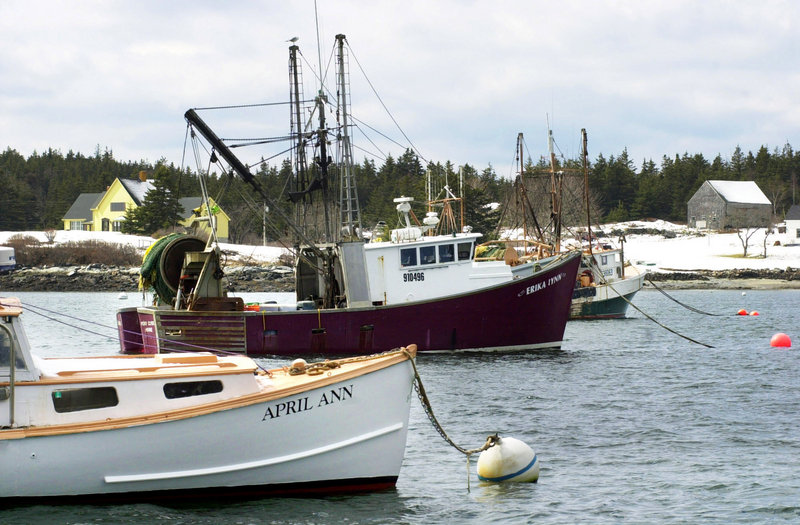PORTLAND – During my 12 years in Congress, I worked closely with groundfishermen. It was their feedback and insight that inspired me to collaborate with members from both sides of the aisle to improve the primary law governing the management of our country’s fisheries.
This achievement marked a desperately needed change that ended sanctioned overfishing in U.S. waters. Unfortunately, some are now seeking to sacrifice years of work toward rebuilding regional fisheries for the sake of short-term profits.
Sadly, such progress toward ending overfishing came to pass after a decade and a half of mismanagement under which both fish and coastal communities suffered.
For decades, fleets in New England followed so called “days-at-sea” regulations. This system limited time spent on the ocean and the amount of catch brought home each day.
Fishermen told me this resulted in needless waste, forcing them to throw overboard excess catch, often dead, that was otherwise fit for market.
Under that unfortunate system, industry revenues, active fleet size and landings of many groundfish all decreased by at least half. The need for change was clear, and so the 2006 legislation aimed to stop the practice of overfishing through catch limits.
BASED ON SCIENCE
My former colleagues and I knew that our resources would only recover if managers set sustainable and enforceable limits based on sound science.
The New England Fishery Management Council, which is made up of federal and state representatives, fishermen and other stakeholders, oversaw and guided implementation of these new rules.
The council used three years of research, debate and public input to craft a new management approach, giving groups of fishermen, or “sectors,” greater control over fishing decisions.
The idea was popular, and all but one council member voted in favor of the plan, with representatives from the states of Maine and Massachusetts showing strong support.
Yet, some in Massachusetts are now criticizing the catch limits as too restrictive, calling into question the peer-reviewed scientific process the New England council employed in setting catch values.
These people, some representing the Commonwealth of Massachusetts, recently tried to pressure the Obama administration to increase the established limits, which might have compromised fish populations’ ability to continue rebuilding. Based on the best available science, Commerce Secretary Gary Locke was right to reject these requests to raise catch limits.
Now, a suit has been filed against the National Marine Fisheries Service in federal court, despite the extensive public participation involved in the passage of the legislation and implementation of the regulations involved.
It took years to get an enforceable requirement that would stop overfishing. This is no time for exceptions that will again put our fish stocks at risk. The lawsuit undermines the integrity of the council’s process and its scientific methods, which are sound.
WHERE IT WORKS
Detractors of the new system should instead look to those who are making it work. For example, the small boat fishermen that I represented in Port Clyde started the country’s first “Community Supported Fishery,” distributing their catch directly to consumers and building their own processing plant.
They now get more money per pound, and customers know they are helping to preserve one of Maine’s last fishing communities, while keeping their dollars at work in the local economy.
All change is challenging. During this period of transition for the groundfish fleet, the common long-term interest is a sustainable New England fishery. We must not let short-term issues obstruct that.
As a lifelong New Englander, I understand the hardship that any set of regulations can create for individual fishermen. Yet, from what I saw and heard first-hand from my constituents in Port Clyde and others, the old management system was broken.
We have to give the new one a chance to succeed.
– Special to the Telegram
Send questions/comments to the editors.



Success. Please wait for the page to reload. If the page does not reload within 5 seconds, please refresh the page.
Enter your email and password to access comments.
Hi, to comment on stories you must . This profile is in addition to your subscription and website login.
Already have a commenting profile? .
Invalid username/password.
Please check your email to confirm and complete your registration.
Only subscribers are eligible to post comments. Please subscribe or login first for digital access. Here’s why.
Use the form below to reset your password. When you've submitted your account email, we will send an email with a reset code.